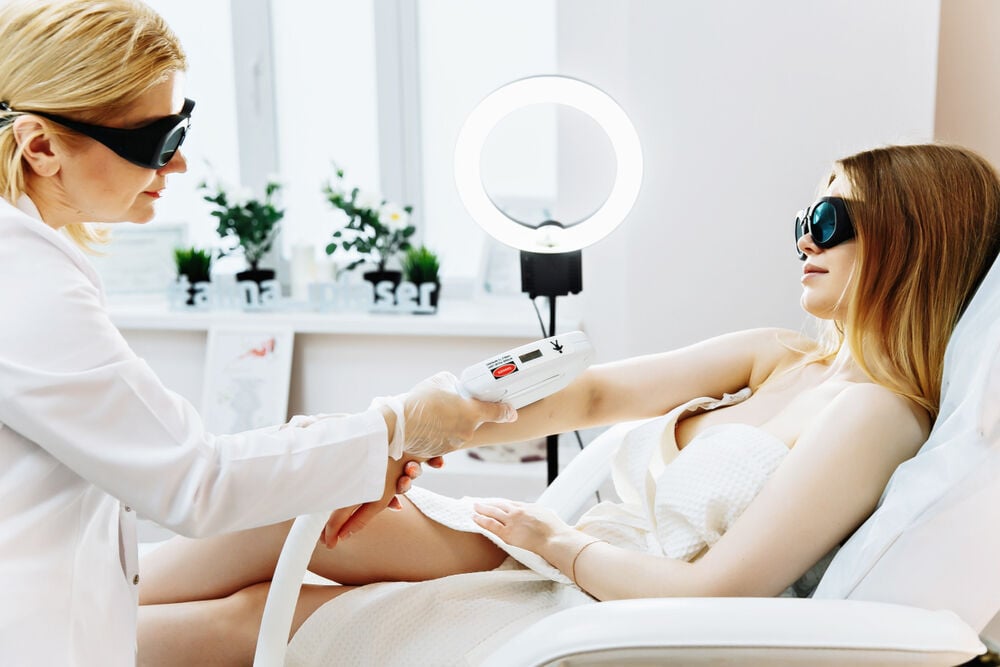The symptoms and signs of hirsutism depend on the underlying cause of the condition. Occurring in about 5 to 10 percent of all women, hirsutism may occur slightly more often with age. This guide explains some of the most common causes and available treatments.
-
Tracking cycle
-
Getting pregnant
-
Pregnancy
-
Help Center
-
Flo for Partners
-
Anonymous Mode
-
Flo app reviews
-
Flo Premium New
-
Secret Chats New
-
Symptom Checker New
-
Your cycle
-
Health 360°
-
Getting pregnant
-
Pregnancy
-
Being a mom
-
LGBTQ+
-
Quizzes
-
Ovulation calculator
-
hCG calculator
-
Pregnancy test calculator
-
Menstrual cycle calculator
-
Period calculator
-
Implantation calculator
-
Pregnancy weeks to months calculator
-
Pregnancy due date calculator
-
IVF and FET due date calculator
-
Due date calculator by ultrasound
-
Medical Affairs
-
Science & Research
-
Pass It On Project New
-
Privacy Portal
-
Press Center
-
Flo Accuracy
-
Careers
-
Contact Us
The Ultimate Guide to Hirsutism: Symptoms, Causes, and Treatment


Every piece of content at Flo Health adheres to the highest editorial standards for language, style, and medical accuracy. To learn what we do to deliver the best health and lifestyle insights to you, check out our content review principles.
What is hirsutism?
Hirsutism is the excessive growth of coarse or thick dark hair that occurs in “male-typical” locations on women. For example, women with hirsutism may have hair on their upper lip, sideburns, chin, lower back, and thighs.
What are the symptoms of hirsutism?

The mildest form of hirsutism causes mature hair growth that’s the same color as the hair on the scalp. Other symptoms may include:
- Oily skin
- Hormonal acne
- Hair loss
- Male-pattern baldness
- Enlarged clitoris
- Deeper voice
What causes hirsutism?
The main cause of hirsutism is a hormonal imbalance that creates an excess of androgens, the hormones that trigger male physical and sexual development. Women typically have low levels of androgens, but these levels may rise and fall depending on the individual. High levels of androgens tend to stimulate the hair follicles, which leads to an increase in hair growth.
Polycystic ovary syndrome
Polycystic ovary syndrome, or PCOS, is a hormonal disorder in women who are of reproductive age. The exact cause of this disease is unknown, but women with PCOS tend to develop small fluid-filled sacs on the ovaries. In addition to excessive hair growth, PCOS can cause irregular menstrual periods, weight gain, acne, oily skin, pelvic pain, and infertility.
More common in women who are overweight, PCOS poses a greater risk for metabolic syndrome, heart disease, diabetes, and high blood pressure. There is no cure for the disease, but it can be controlled with regular exercise, diet, and medication. Some women find that birth control pills help regulate irregular periods and reduce male hormones. Infertility caused by PCOS may require intervention with medication, surgery, or in-vitro fertilization.
Take a quiz
Find out what you can do with our Health Assistant
Cushing’s syndrome
Cushing’s syndrome occurs when your body has high levels of cortisol for long periods of time. Often referred to as hypercortisolism, Cushing’s may be caused by taking excessive amounts of oral corticosteroids or when the body makes too much cortisol. It may also be caused by a pituitary gland tumor or a gland disease. Symptoms of the disease include:
- Slow-healing cuts
- Acne
- Excessive weight gain
- Thicker facial hair
- Decreased libido
- Severe fatigue
- Muscle weakness
- Anxiety
- Cognitive difficulties
An excessive amount of cortisol increases your risk of high blood pressure, bone loss, and type-2 diabetes. Prescription medication is the main course of treatment, but it depends greatly on the underlying cause.
Tumors in adrenal glands
Part of the endocrine system, adrenal glands release hormones into the blood. These hormones regulate metabolism, puberty, sexual development, and other body processes. Located on top of the kidneys, these glands may form tumors. Adrenal tumors can be either benign (noncancerous) or malignant (cancerous).
Symptoms of adrenal cancer include:
- High blood pressure
- Excessive facial hair
- Fatigue
- Diabetes
- Headaches
- Feelings of anxiety and fear
- Sweating
- Tremors
Treatment of adrenal tumors usually includes surgery to remove one or both of the adrenal glands, chemotherapy, and/or medication.
Medications
Several types of medications have been known to cause excessive hair growth in women. These include:
- Anabolic steroids
- Testosterone treatments
- Glucocorticoids
- Cyclosporine
- Minoxidil
- Danazol
- Phenytoin
When medications are the cause of hirsutism, your physician may be able to prescribe alternate medications or treat the excessive hair growth as a separate condition.
Congenital adrenal hyperplasia
Congenital adrenal hyperplasia (CAH) is a genetic disorder that affects the adrenal glands. Individuals with CAH lack specific enzymes and often overproduce androgens. The symptoms of CAH depend on the specific genetic disorder and the level of enzyme deficiency but may include excessive hair growth and enlarged genitals.
Doctors may prescribe medication to restore hormones to their normal levels, including corticosteroids, mineralocorticoids, and salt supplements. Additional medication may be needed to relieve stress and treat underlying illnesses.
Who’s at risk for having hirsutism?
Hirsutism sometimes runs in families, which means if your mother or sisters have the condition, you are also likely to get it. The most common cause of hirsutism is PCOS, which accounts for 72 to 82 percent of all cases. Women who live in the Middle East, South Asia, or Mediterranean area are more likely to have hirsutism with no identifiable cause.
How to treat hirsutism

Tests that check for testosterone in the blood are used to diagnose the underlying condition. Diagnostic tests like an ultrasound or CT scan may be used to check your ovaries and adrenal glands for cysts or tumors. Your physician may also examine your abdomen or do a pelvic exam to look for noticeable masses.
To permanently remove unwanted hair, there are a few options available.
- Electrolysis involves inserting a tiny needle, which emits an electric current, into each hair follicle. Multiple treatments are required to ensure hair doesn’t return. The procedure can be painful; however, the treatment specialist will use a numbing cream beforehand to reduce pain.
- Laser therapy uses a beam of highly concentrated light that passes over the skin to damage hair follicles and prevent hair from growing. Multiple treatments may also be required for this procedure.
- Oral contraceptives are often used to help reduce the level of testosterone in the body.
- Eflornithine cream, when applied directly to the areas where unwanted hair grows, slows down hair growth after hair removal.
Other options for self-treatment include plucking, shaving, waxing, and using chemical depilatories. It’s also possible to bleach unwanted hair to make it less noticeable.
Is it possible to prevent hirsutism?
Hirsutism isn’t a preventable disease, but if you are overweight and have PCOS, losing weight may help reduce the occurrence of unwanted hair. A nutritious, balanced diet and regular exercise may also help control weight and reduce the risk of complications like diabetes.
When to see a doctor
If you experience excessive unwanted hair, it’s a good idea to see your physician to determine the underlying cause. Other reasons to consult a physician include:
- Menstrual problems
- Excessive hair that grows before puberty
- Baldness
- Deepening of the voice
- Obesity
If you notice an excessive growth of hair on noticeable parts of your body, check with your physician about hirsutism. Early detection of hormone levels may make the condition easier to treat and can rule out other medical issues.


Hey, I'm Anique
I started using Flo app to track my period and ovulation because we wanted to have a baby.


The Flo app helped me learn about my body and spot ovulation signs during our conception journey.


I vividly
remember the day
that we switched
Flo into
Pregnancy Mode — it was
such a special
moment.
Real stories, real results
Learn how the Flo app became an amazing cheerleader for us on our conception journey.




